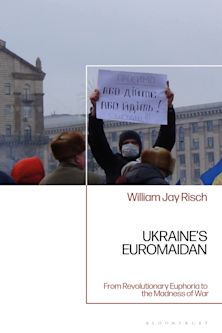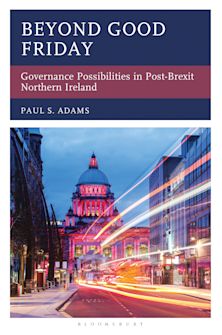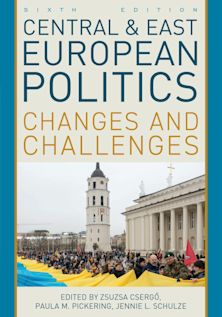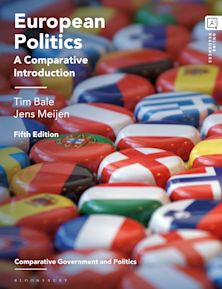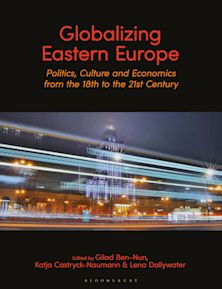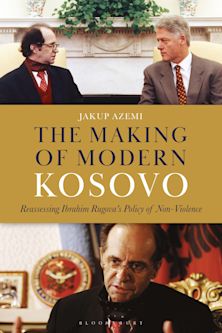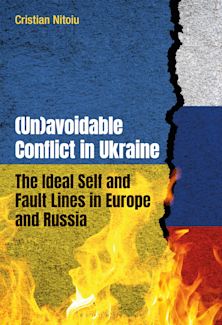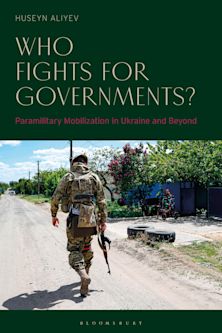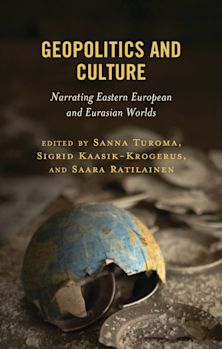- Home
- ACADEMIC
- Politics & International Relations
- European Politics
- Europe Old and New
Inspection copy added to basket
This title is available for inspection copy requests.
Please note our inspection copies are only available in ebook format, and are fulfilled by VitalSource™. If an ebook isn’t available, please visit our inspection copy page for more information.
Buy from Bloomsbury eTextBooks
You are now leaving the Bloomsbury Publishing website. Your eBook purchase will be with our partner https://www.vitalsource.com.
Your credit card statement will show this purchase originating from VitalSource Technologies. They will also provide any technical assistance you might require.
You must sign in to add this item to your wishlist. Please sign in or create an account
Description
Is Europe indeed uniting or instead falling apart as a result of anti-immigrant prejudices, a massive Islamic influx, and ancient intra-European hatreds? This innovative and engaging book explores this key question by examining the national and religious phobias and prejudices, antipathies and sympathies, stereotypes and heterotypes of Europe west and east. Considering the sources of Europe's culture-based divide, Ray Taras argues that the idea of two "Europes" is grounded both in reality and myth. The accession process that brought a dozen new members into the European Union after 2004 highlighted the persisting gulf between "old" and "new" Europe. While many concrete borders between east and west were removed (commercial, legal, passport regimes), many remained (absence of a single Euro currency zone, labor market, and security community). Virtual borders too were invented or re-imagined: the postmaterialist, inclusionary, tolerant values supposedly found in old Europe versus the materialist, nationalistic, xenophobic ones of new Europe.
After reviewing the two Europes' contrasting historical legacies, Taras examines the EU institutions designed to overcome the historical European divide. He considers the treaties, political rhetoric, citizen attitudes, and literary narratives of belonging and separation that both bind and fray the fabric of Europe. Throughout, this interdisciplinary work provides a comprehensive, hard-hitting, and unabashed review of how enlarged Europe embraces contrasting understandings of its political home and of who belongs and who does not.
Table of Contents
Chapter 1: Europe's Institutions and Millennial Expansion
Chapter 2: Quarreling Over Institutions in an Enlarging EU
Chapter 3: Metacultural Presumptions of European Elites
Chapter 4: The Politics of Phobias
Chapter 5: European Publics and their Phobias
Chapter 6: Ethnic Hierarchies
Chapter 7: Narrations of Home Across Borders
Chapter 8: Narrating Europe's Phobias
Conclusion
Product details
| Published | 31 Jul 2008 |
|---|---|
| Format | Ebook (PDF) |
| Edition | 1st |
| Extent | 266 |
| ISBN | 9780742557345 |
| Imprint | Rowman & Littlefield |
| Publisher | Bloomsbury Publishing |
Reviews
-
This book does not opt for a facile definition of old versus new, choosing instead to explore the conflicting experiences of political elites and ordinary citizens and what constitutes 'belonging' from these different perspectives.
International Affairs
-
For a student of literature it is eminently gratifying to see a prominent political scientist factor works of the literary imagination into his riveting account of contemporary Europe's intricate negotiation of its multi-layered, old/new identity. As it panoramically canvasses the sea changes overtaking the continent, this timely book bridges not only disparate scholarly fields and academic disciplines but also different research methodologies, evaluative criteria, conflicting narratives, and alternative strategies of identity formation.
Muhammad Siddiq, University of California, Berkeley
-
How do Europeans see each other and those immigrants who have come from other parts of the world? And how do persistent negative images affect the project of European integration? Digging deeply into a broad repertoire of academic writing, political discourse, survey data, and contemporary novels, Ray Taras does a very good job in gathering and presenting the evidence. What he finds is sobering for Europhiles as well as Eurosceptics.
Rainer Bauböck, European University Institute
-
Taras presents a wide-ranging and engaging analysis of the condition of contemporary Europe. Using a combination of historical, cultural, and political approaches, he deals with its institutions and policies, its hopes and uncertainties. He explores the differences between Atlanticist and post-Communist Europe and the role of the European Union in bridging them; the tensions between traditional and globalizing Europe; and the challenges of immigration, integration, and socioeconomic change to national identities.
William Safran, University of Colorado, Boulder














